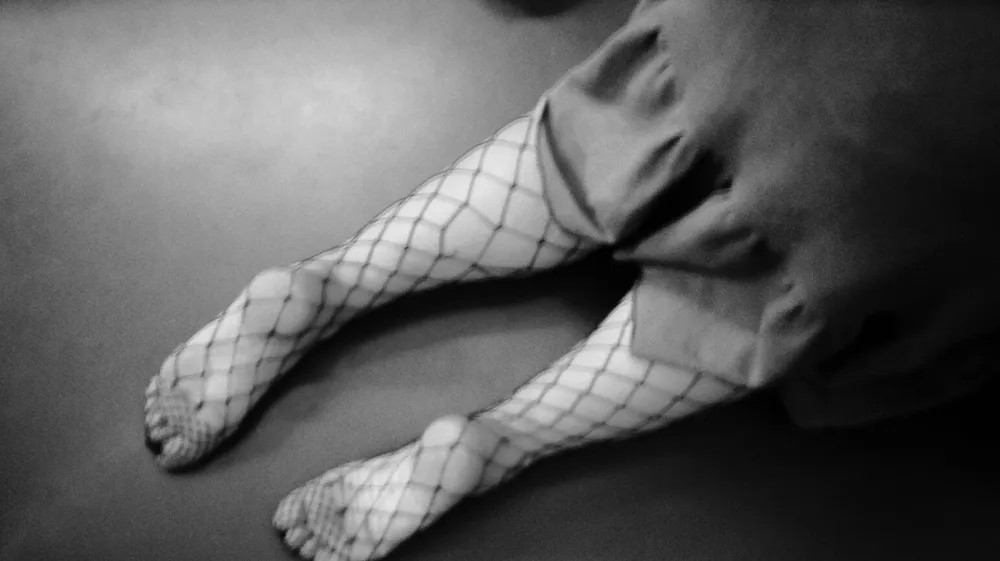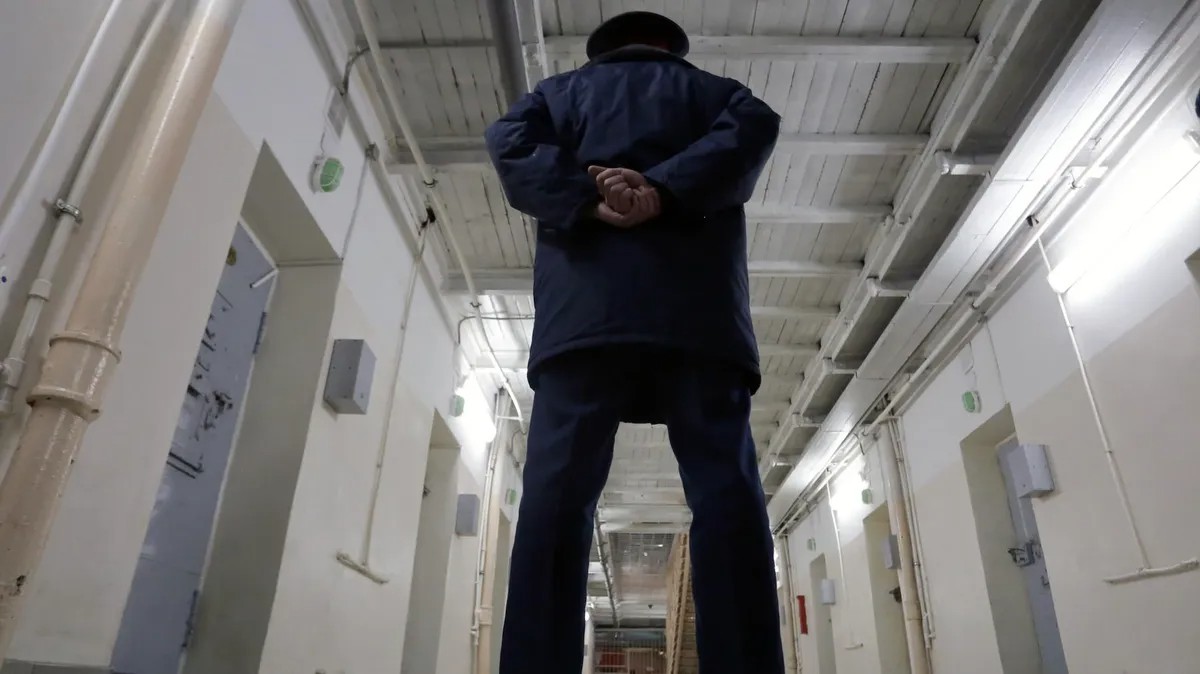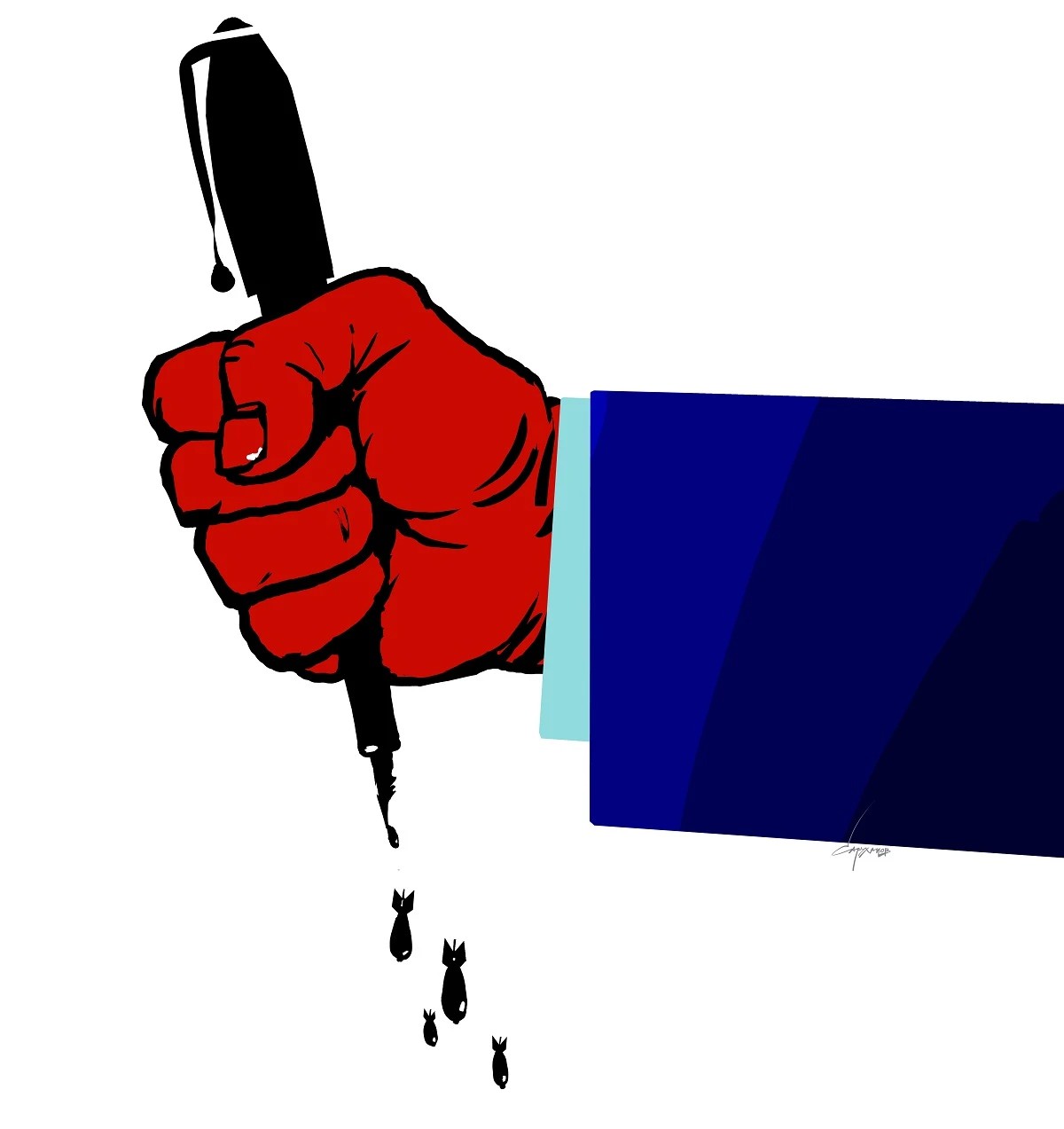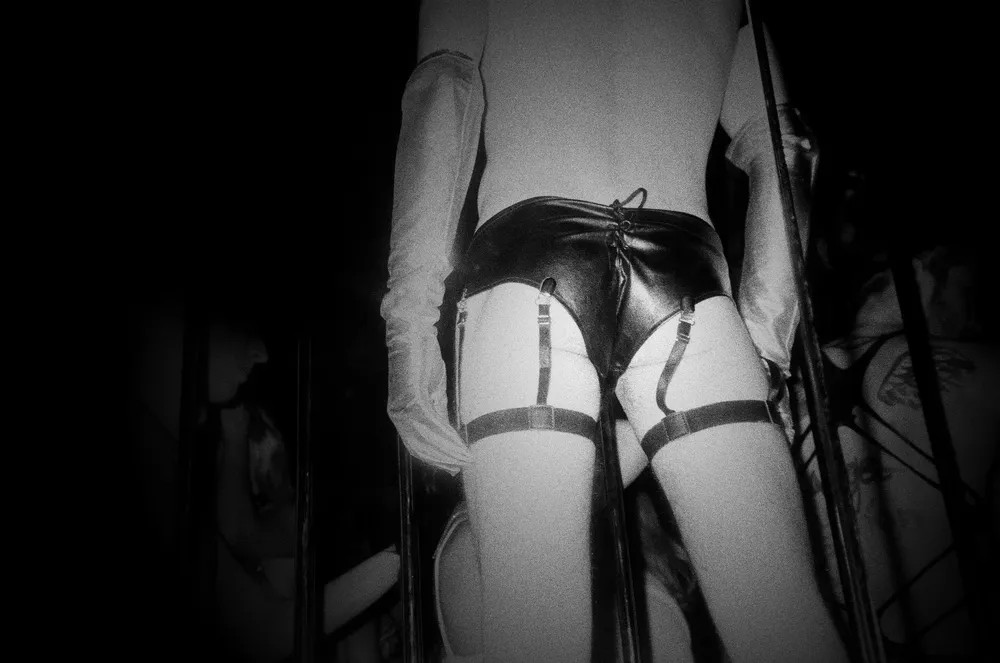
Photo: Alexey Dushutin / "Novaya Gazeta"
Here what’s in store for you this week:
- Kremlin promises to end prison torture with ‘digitalization’ of Russia’s Federal Penitentiary Service. We explain how this is just another window-dressing for the rollout of authoritarian tech;
- New wave of Russian military buildup next to the Ukrainian border that wasn’t. We fact-check alarmist headlines and link them to Russian propaganda;
- Plus, the grim reality of “gay conversion therapy” in Russia. We interview survivors of the practice that is widely common across the country.
Want to get the full story? Click the links below for full-length articles in Russian.
Crime and (Digital) Punishment in Russia
Torture in Russian prisons hasn't been a secret for the Russian public and has a decades-old history. Nevertheless, many were shocked when the Russian human rights project "Gulagu.net" published a big vault of videos documenting torture and rape in one of the penal colonies in Saratov. They were recorded by prison officials, and civil society hackers snatched them off prison servers. In response, the Russian government doubled down on the ongoing 'digitalization' plan for prisons promising that it is designed to fix the problem. This week our special correspondent Irek Murtazin explains how this idea is just another window-dressing for the expansion of Russian authoritarian tech.
WHAT IS 'DIGITALIZATION' OF RUSSIAN PRISONS. Last year, the Federal Penitentiary Service (FSIN) requested 25 billion roubles (approximately $350 million) to digitalize 380 prisons across the country — and, this year, the government has delivered, providing the first tranche of 800 million roubles in October. The FSIN plans to introduce facial recognition, behavioral analysis, and rehabilitation programs based on inmates' digital profiles. Digitalization, claims the FSIN, will reduce "non-typical behavior" — a deliberately neutral term for the torture and abuse of inmates — accusations of which have been rife over the past year in penitentiary facilities across the country.
WHY NOW. Coincidentally — or, perhaps, not so coincidentally — news of the first tranche emerged simultaneously with the Gulagu.net leak and public release of 'Alexei's Witnesses,' an hour-long documentary detailing the torture and humiliations suffered by opposition leader Alexei Navalny since his arrest in January this year. The politician, claims the film, is held in the same conditions as inmates sentenced for multiple murders.
AUTHORITARIAN TECH DISGUISED AS REBOOT OF PRISONS. Novaya's Irek Murtazin casts doubts on whether the digitalization scheme will have any real impact. He is sure that this initiative is part of the larger government roll-out of mass surveillance tech.
"If the video surveillance system does not lead to the punishment of the perpetrators, it is useless," he writes.

Photo: Kommersant
The proof of the widespread torture of inmates in a Saratov prison hospital, after all, were recordings retrieved by former prisoner Sergei Savelyev from the facility's servers. Prison authorities, writes Murtazin, "knew about [the torture] but did nothing to bring the sadists and their protectors to account. The revelations that shocked the whole country were, to them, nothing but 'legally protected computer data.'"
KREMLIN HAS A LONG TRACK RECORD OF PRISON TORTURE PROBES THAT LED NOWHERE. Based on this track record of indifference, Murtazin concludes that — while the prison to which Navalny has been transferred has been kitted out with comprehensive video surveillance — "no one is considering curtailing the violations of the rights of Prisoner Number 1." Just last week, the Investigative Committee of Rostov-on-Don launched criminal proceedings against the local prison authority after more than 60 inmates spoke out about their experiences of torture in the prison hospital. Last month, the General Procuracy and the federal Investigative Committee began reviewing the management of a prison hospital in Saratov at the epicenter of the Gulagu.net investigation. While national law enforcement agencies began addressing the evidence last month, rights defenders had been sounding the alarm about the treatment of inmates in the facility for almost 10 years. Also, in October, a high-profile official from the Moscow region Aleksandr Shestun spoke publicly about the beatings he received while in pre-trial detention. Russia's Federal Penitentiary Service (FSIN) responded that his account "did not correspond with reality.’
BACKSTORY. Russia has one of the highest incarceration rates globally (26th) and the 4th largest prison population (half a million inmates). On top of that, the country's penitentiary system suffers from chronic underfunding, corruption, and widespread abuse. Tens of thousands of prisoners languish for months or years without being charged with a crime. Even before the COVID-19 pandemic, Russia's penitentiary system has faced scrutiny for its horrifying conditions. In particular, Novaya Gazeta has continuously worked to expose the widespread use of torture in Russian prisons. During the ongoing pandemic, Russian officials failed to safeguard the prison population from deadly COVID-19 outbreaks, forcing inmates into further 'hyperisolation.'
Read the full story in Russian here.
Fact-Checking Russian Military Buildup Next to Ukraine
Recent western headlines about the Russian military buildup next to the Ukrainian border were met with slight indifference in Kyiv and Moscow. This week our columnist Pavel Felgengauer explains why.
NO NEW MAJOR MOVEMENTS. KREMLIN HAS JUST NEVER MOVED THE TROOPS BACK FROM THE LAST BUILDUP IN SPRING. Last week, The Washington Post reported on the growing concern regarding the presence of heavy Russian weaponry on the Ukrainian border. The 41st army of the Central Military District — based in Novosibirsk — has been stationed in Voronezh since April this year. In September, Zapad-2021 — Russia’s annual strategic military exercise — drew to a close. Although the detachment in question participated, they did not leave when the training ended. Recent satellite images show the presence of tanks in the regions of Eln, Kursk, and Bryansk regions — all close to Ukraine. But this is nothing new — both local journalists and OSINT experts warned about these ‘leftover troops’ from the spring buildup for months.
UKRAINE IS UNBOTHERED. Since no new movements really happened, the Ukrainian Ministry of Defense has also confirmed that it has not yet seen a significant Russian mobilization on its border. The surprisingly calm response from Ukraine could also indicate the less belligerent tone of President Zelensky’s administration compared to that of his predecessor, Petro Poroshenko. Kyiv has been trying to find a feasible and realistic resolution to the 7-year-old war that became a severe drag to both countries.

Illustration by Petr Sarukhanov
FEAR-MONGERING PLAYS THE HAND OF RUSSIAN PROPAGANDA. Although no new troop movements happened, the Kremlin and Moscow-controlled Donbas statelets used the publicity opportunity to further vilify Kyiv and deny Moscow’s responsibility for the ongoing war. The so-called “Donetsk People’s Republic” (DNR) spread disinformation messages claiming that the Ukrainian military would soon launch an offensive. Russia’s Foreign Minister, Sergei Lavrov, also pointed the finger at Ukraine, castigating the latter for “trying to create a provocative situation […] to drag Russia into a military response.”
STAY CALM AND CHECK FACTS ON THE GROUND. Novaya’s Pavel Felgengauer sees nothing to cause undue alarm, arguing that this apparent escalation “bears, more than anything, a declarative-verbal propagandistic character.” While we are seeing some movement of Russian troops on the Ukrainian border, Felgengauer writes that these bear “no resemblance to the mass scale” of the ‘Combat Readiness Check’ that took place in spring. “A lot would have to happen,” he assures, for there to be a “real escalation of the conflict.”
‘We need to wait for the dirt of Russian roads to freeze and make them travelable. Then give some time for celebrations of the New Year and Orthodox Christmas on both sides of the border. After that, like last spring, it will be necessary to mobilize and draw additional forces and funds from nearby garrisons in Siberia and along the border with Baltic states. Finally, everyone will wait for the final order of the highest authorities to come,’ Felgengauer explains, with a traditional dash of his satire.
Поддержите
нашу работу!
Нажимая кнопку «Стать соучастником»,
я принимаю условия и подтверждаю свое гражданство РФ
Если у вас есть вопросы, пишите [email protected] или звоните:
+7 (929) 612-03-68
Until such circumstances occur, he concludes, the situation will continue much as it always has: “clashes, skirmishes, fearsome accusations. And shooting.”
BACKSTORY. The so-called «Donetsk People's Republic» and «Luhansk People's Republic» remain home to 3,000,000 residents despite heavy fighting sporadically breaking out in the area. The breakaway territories became self-proclaimed statelets after the 2014 pro-democratic revolution in Ukraine. The separatist movement was part of the Kremlin attempt to preserve political and economic control over the country. As then-president Ukrainian president Yanukovych fled to Russia, Moscow annexed the Ukrainian region of Crimea while stoking unrest in the country's eastern regions — effectively establishing control over 7 percent of the Ukrainian territory. At the time, Russian state propaganda manufactured a false narrative of an ethnic divide in Ukraine. It has been using it as an excuse to keep meddling in Ukrainian affairs since then. Moscow has never officially acknowledged the invasion of Eastern Ukraine. Still, the presence of Russian troops on the ground is well-documented, including by Novaya. The seven-year war has left approximately 13,500 dead, 1.6 million internally displaced, and over 800,000 refugees.
Read Felgengauer’s op-ed in full in Russian here.
“Conversion Therapy” Po-Russki, Explained
"Is it possible to cure those who are not sick?" asks our correspondent Tatyana Britskaya in this week's chilling report on the prevalence of 'conversion therapy' (i.e., the non-scientific attempt to 'cure' non-cis-heterosexual people of their identity) across Russia.
THE STATE-FUNDED PRACTICE HAS BECOME MORE COMMON ACROSS RUSSIA. Recent research by the Moscow LGBTQ+ Community Centre shows that licensed medical establishments — including government-funded ones — offer this 'treatment' in multiple regions. Queer and transgender Russians become the main targets of the practice that the UN calls to be banned internationally. It often borders with torture as adolescent Russians are forced into it by their parents.
"I WAS TAKEN TO FOUR EXORCISTS. The first time was in Grozny in the summer of 2018. I didn't expect things will be so serious. They took me to a large building, similar to a mosque, surrounded by security. Mullah was furious that I was dressed and looked like a guy. He told my parents that according to Sharia law, I should be killed as an abomination. Mom started crying right away," Ibrahim, a young transgender man from the southern Russian region of Chechnya, told us (we changed the names of most speakers in the story for security reasons).
AS IN THE UNITED STATES, 'CONVERSION THERAPY' IN RUSSIA IS INEXTRICABLY LINKED TO FUNDAMENTALIST RELIGIOUS VIEWS — BOTH CHRISTIAN AND ISLAMIST. We also spoke with Vasily, a survivor of one such 'rehabilitation center' in the Arctic city of Murmansk, run under the auspices of Churches of Christians the Evangelical Faith.
"There were no telephones. I could not call my mother and tell her what was happening. We were completely under their control. They told us: You are this either because someone raped you or because you had problems with your parents during childhood,' Vasily recalls.

Photo: Alexey Dushutin / "Novaya Gazeta"
"HE COULD HIT YOU AT ANY MOMENT." 'Conversion therapy' is also widespread in the North Caucasus — the epicenter of ongoing Russian queer pogroms. Louisa, a queer woman from Chechnya, told Novaya of the so-called Islamic Medicine centers.
"They take you into a room and cover you with a sheet. You cannot open your eyes […] there are giant speakers playing recitations of the Quran. You feel as if your ears will burst because it is so loud. All the while, the 'healer' walks around you, and you have to lie down with your eyes closed. He could hit you with a stick at any moment. My mother was nearby and warned him not to hit me, but he beat other girls — the ones who moved. If their arm or their leg twitch, he strikes them in the stomach. To make the 'djin' [demon] come out."
'THE RUSSIAN GOVERNMENT CARES EVEN LESS ABOUT THIS ISSUE THAN IT DOES ABOUT DOMESTIC ABUSE" is Britskaya's grim conclusion. While the international community has been stirred to periodic outrage by the treatment of LGBTQ+ people in Russia — first in 2012 when the Government passed the 'anti-gay propaganda law, and again in 2019 when reports of the brutal persecution of gay people in Chechnya emerged — Britskaya's report is a timely and painful reminder that the problem remains very much present in Russia even if it is absent from the global headlines..
BACKSTORY. LGTBQ+ rights have been under attack in Russia since the early 2010s, and the crackdown has become an essential feature of Putin's rule over the country. In 2013, Russia passed an anti "gay propaganda" law that banned exposing minors to LGBT+ materials. Human rights groups say the law has exacerbated hostility towards LGBT+ people and has had a detrimental effect on queer children. In the last year, Russian officials stepped up their attacks on queer families and transgender Russians. The pandemic made it almost impossible for Russian victims of hate crimes to seek refuge abroad. Officials have also been turning a blind eye to the brutal torture and killings of LGBT+ people in the country, including the anti-gay purges in Chechnya. The stories of female victims of these pogroms remain mostly untold. But the rift between Kremlin's homophobia and societal attitudes is growing too — many have become exasperated with state gaslighting on the back of queer issues. Visible support for equal rights keeps growing in Russia.
Read the full report in Russian here.
Bonus Round
- KREMLIN’S FAILED WAR ON COVID. Russians find themselves in yet another lockdown to stop the spread of COVID-19 as the daily infection rate — more than 40 thousand per day — reaches its highest peak since the beginning of the pandemic. The authorities’ response to COVID, writes Novaya’s Aleksei Levinson, is much like a military response to an enemy combatant. After all, those who hold the reigns of power got their start in the security or defense apparatuses. This is what — or perhaps all — they know how to do. Putting the country on metaphorical war-footing has not, however, had the desired effect. According to a recent Levada Centre survey, 45% of Russians do not want to get vaccinated. “In the eyes of the public,” says Levinson, “Sputnik is not a life-saving medicine, but rather an instrument of propaganda.” There is a particular tragedy in this situation: over the last century, the Soviet — then the Russian — State lied to its people repeatedly, teaching the latter to always be wary of messages from the top. Like the boy who cried wolf, now that authorities are telling the truth about the importance of vaccination, the population does not buy it. And, as in Aesop’s fable, it is all of society that suffers.
WE HAVE A SPECIAL TREAT FOR OUR GROWING AND DEVOTED ENGLISH-SPEAKING READERS — A PODCAST!
- THE RUSSIAN CONTEXT is our first English-language podcast show. You can find it on Apple Podcasts, Spotify, Google Podcasts, Soundcloud, Castbox and VK podcasts. Our first episode is devoted to the rising power of Russian authoritarian tech and the Kremlin's growing censorship of Russians online. It features our columnist Sergei Golubitskii explaining the consequences behind recent success of the Russian Sovereign Internet, our politics correspondent Dasha Kozlova explaining new wave of online censorship laws, our special correspondent Ivan Zhilin explaining Russian disinformation, and our politics editor Kirill Martynov reflecting on the future of Russian digital repressions. We would appreciate your feedback. Please drop us a line at [email protected].
This newsletter drop is written and edited by several journalists at the Novaya Gazeta newsroom. Please, support our work by promoting our newsletter with#RussiaExplained hashtag on social media.
To keep up with Novaya Gazeta’s reporting throughout the week, you can follow us on Facebook, Twitter, Instagram, and Telegram. Our video content is available on Youtube and don’t forget to visit our website for the latest stories in Russian.
The Novaya Gazeta Team
Поддержите
нашу работу!
Нажимая кнопку «Стать соучастником»,
я принимаю условия и подтверждаю свое гражданство РФ
Если у вас есть вопросы, пишите [email protected] или звоните:
+7 (929) 612-03-68